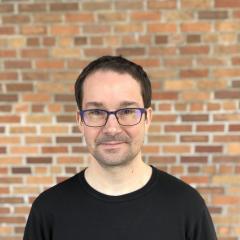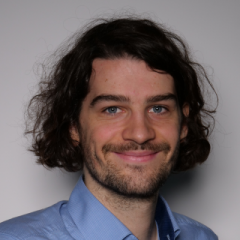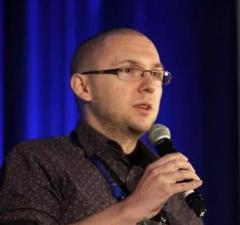Track Overview
Modern CS in the Real World
Computer Science research did not stop at QuickSort or the LR algorithm. In this track we'll cover topics such as probabilistic algorithms and data structures, new security and distributed algorithms, advances in typing, formal methods, new approaches to concurrency and much more. Why? Because we need to tackle ever more data in shorter periods of time - but our CPUs don't get much faster. Concurrency helps - but that just brings new problems to tackle, and meanwhile more moving parts just means more things that can fall over if we're not careful. Time to sneak a peek at approaches real companies use to tackle these issues using Computer Science research and results from the last few decades.
From this track
Differentiable Programming in Kotlin
Wednesday May 19 / 09:10AM EDT
Over the last few years, several frameworks have been developed to support differentiability. The most popular are PyTorch, TensorFlow and JAX which are all built on Python. These frameworks are oriented towards machine learning which involve building a model, performing batched computations on...

Irene Dea
Software Engineer @Facebook
Co-Designing Raft + Thread-per-Core Execution Model for the Kafka-API
Wednesday May 19 / 10:10AM EDT
Sometimes you get to reinvent the wheel when the road changes. Redpanda is a drop-in replacement for Apache Kafka®, designed from the ground up for modern hardware. Hardware looks nothing like it did 10 years ago. NVMe disks are 1000X faster than spinning disks. Cloud computers offer 30X more...

Alex Gallego
Founder and CEO @VectorizedIO
Getting The Most Out Of Sandboxing
Wednesday May 19 / 11:10AM EDT
Privilege separation and reduction ("sandboxing") has significantly improved software security, and in many applications is a baseline requirement for safe design. (In fact, there are still many applications that can and should adopt sandboxing.)Although necessary, sandboxing is not...

Chris Palmer
Software Security Engineer on Chrome @Google
Panel: Future of Language Support for ML
Wednesday May 19 / 12:10PM EDT
In this panel, we'll take a look at the state of the art of ML/AI development and how advances in language technology (specifically differentiable programming languages) can help.

Jendrik Jördening
CTO @Nooxit

Irene Dea
Software Engineer @Facebook

Alanna Tempest
Software Engineer @Facebook
Speakers from this track


Alex Gallego
Founder and CEO @VectorizedIO
Alex Gallego is the founder and CEO of Vectorized, where he & the team hack on Redpanda, a modern streaming platform for mission critical workloads. Prior to Vectorized, he was a principal engineer at Akamai, as well as co-founder and CTO of Concord.io, a high performance stream processing...
Read moreFind Alex Gallego at:

Chris Palmer
Software Security Engineer on Chrome @Google
I work at Google as a software security engineer on Chrome, where I work on hardening Chrome’s underpinnings and securing the web platform runtime. (I was previously on the Secure UX sub-team, and before that I did Web PKI... things.) I used to be on the Android team at Google....
Read more
Jendrik Jördening
CTO @Nooxit
Jendrik is CTO at Nooxit. He formerly worked at Aurubis and Akka Germany on Data Science and Deep Learning in the field of industry 4.0 and autonomous machines.At the same time he took part in the Udacity Self-Driving Car Nanodegree, participating with a group of other Udacity student in the...
Read moreFind Jendrik Jördening at:

Alanna Tempest
Software Engineer @Facebook
Alanna is a software engineer at Facebook working on differentiable programming in Kotlin. She is specifically focused on performance. Prior to Facebook, she worked on the compiler team at Mythic AI.
Read moreTrack Host

Werner Schuster
Conference Chair & InfoQ Editor Functional Programming, @Wolfram
Werner Schuster (@murphee) sometimes writes software, sometimes writes about software. He focuses on languages, VMs and compilers, HTML5/Javascript, and recently more on performance optimisation.
Read more
